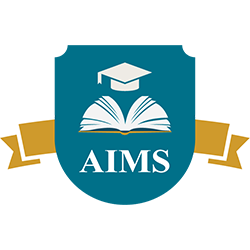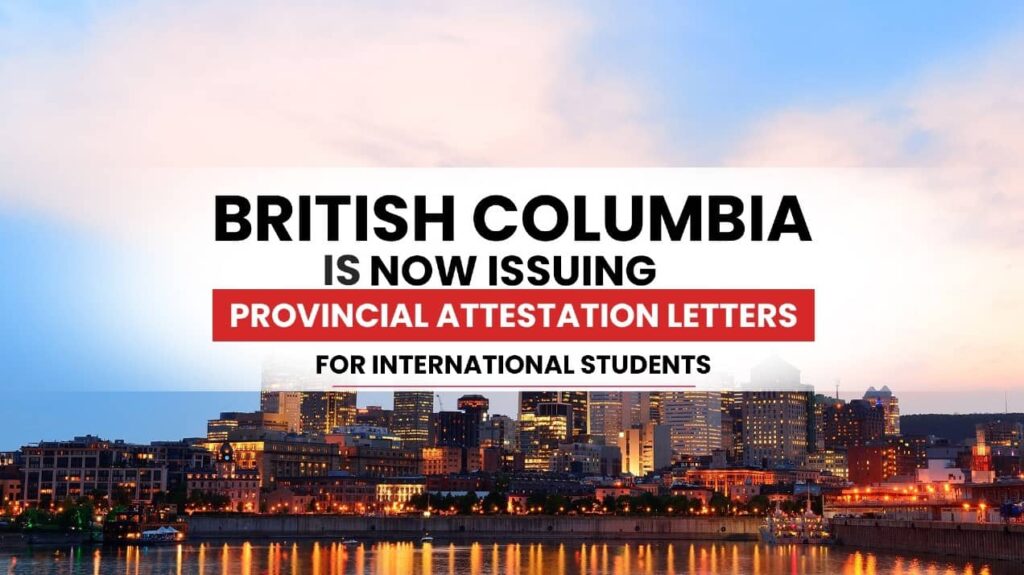Starting from March 4, 2024, a new system called the Provincial Attestation Letter (PAL) is in place in British Columbia.
International students who want to study in that province in Canada need to give a PAL along with their application for a study permit. This letter shows that they’ve been accepted by a certain school called a Designated Learning Institution (DLI). The government of British Columbia explains that the provincial government gives PALs to schools. Then, the schools give these letters to the international students who apply.
Keynotes for the new Provincial Attestation Letters in British Columbia
- International students must submit a Provincial Attestation Letter (PAL) with their study permit application
- 53% of PALs will be for public post-secondary institutions and the remaining 47% will be for private institutions
- British Columbia is Canada’s third most populous province with approximately 5.6 million people.
- IRCC said it will now issue up to 360,000 new study permits in 2024, a 35% reduction over 2023 levels
Details about the Provincial Attestation Letters in British Columbia
British Columbia has been permitted by Immigration, Refugees and Citizenship Canada (IRCC) to accept 83,000 applications for study permits for undergraduate students. The province mentions that according to how many students usually get accepted, the federal government thinks around 50,000 applications will be approved for 2024.
Last year, there were 97,000 applications for study permits for undergraduate programs in British Columbia. Around 60,000 of those applications got approved.
This year, the province says they will give out 53% of PALs to public colleges and universities, and the rest, 47%, will go to private institutions. This means there will be 27% fewer applications for study permits for private institutions compared to last year. British Columbia is doing this to manage the growth better.
British Columbia’s Provincial Attestation Letters system is the first one to be announced after Immigration, Refugees and Citizenship Canada (IRCC) said they would limit the number of study permits issued in 2024. Other provinces are also expected to announce similar systems before March 31.
A cap on study permits by IRCC
On January 22, 2023, IRCC (Immigration, Refugees and Citizenship Canada) said they would give out up to 360,000 new study permits in 2024. This is 35% less than the number they gave out in 2023.
The limit doesn’t affect renewals of study permits or people getting master’s or doctoral degrees.
IRCC also said they will decide how many permits each province gets based on how many people live there. According to data from Statistics Canada, British Columbia is the third most populated province in Canada, with around 5.6 million people.
Besides the limit, the department also said they’re going to make some new rules about who can get Post Graduation Work Permits (PGWPs). They’re also planning to make changes to Spousal Open Work Permits (SOWP). One big change is that spouses or partners of international students who are studying for an undergraduate degree might not be able to get an SOWP anymore. But these changes haven’t started yet.
Other changes in British Columbia for international students
In its announcement, British Columbia says it thinks the limit will mostly affect private schools because they usually have less supervision compared to public schools. Earlier this year, the province also introduced some actions to control the fast growth of international students in the province.
For example, they’re stopping new post-secondary schools from enrolling international students until February 2026. They’re also making sure that private degree programs meet higher standards before getting approval. These standards include having good quality degrees, showing that there’s a need for graduates in the job market, and having enough resources and support for students.
Additionally, the province is setting new rules about the minimum language skills students need to have at private schools. They want to make sure students are ready for studying in British Columbia.
Wrap up
For international students, British Columbia is now issuing Provincial Attestation Letters (PAL) with their study permit application to prove that they have been accepted by a Designated Learning Institution (DLI) within the limits of its allocation.

AIMS Education is a reliable study abroad consultancy firm guiding students in selecting courses, and universities and helping them apply and secure their student visas. Also, AIMS Education is a British Council-certified agent and is listed on the British Council’s global agent list. We provide student recruitment services in the UK, USA, Australia, Canada, Hungary, Poland, Denmark, Malta, Finland, France, Germany, Austria, Spain, Sweden, Malaysia and UAE. Not only this but also AIMS Education is an ICEF Accredited Agent, UCAS Registered Centre, Expatrio Partner, PTE and Language Cert Partner. With an almost 98% student satisfaction rate and 10+ global awards, AIMS Education is now a name of trust among study abroad aspirants.

